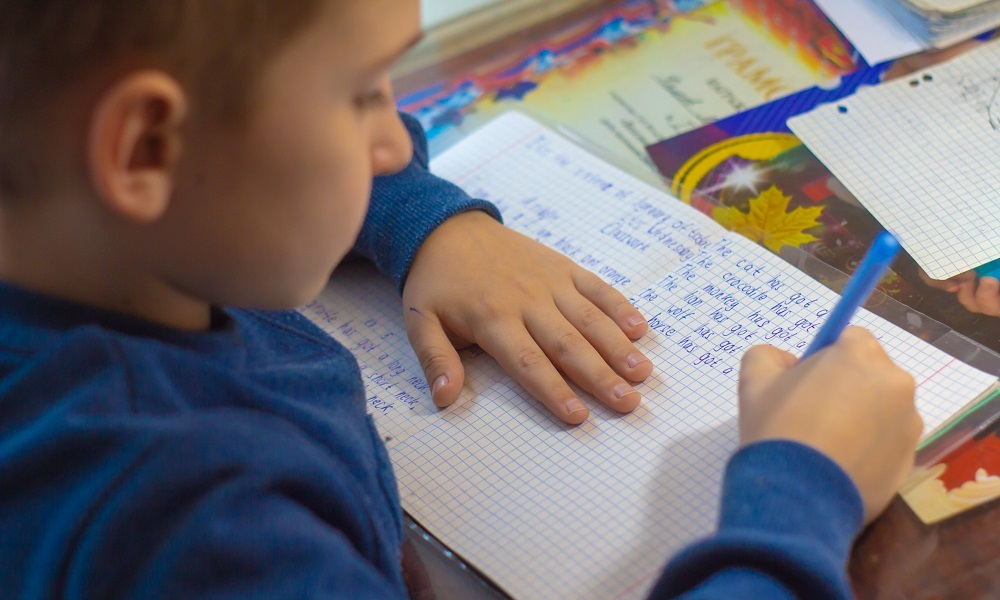Welcome to this month's edition of Researching education: Five further readings. In this series, we take a look at some further readings available on a particular topic, including open access research papers from various online databases, and Teacher archive content you might not have come across yet.
In this edition, we’re taking a look at a range of recent research in Australia that looks at the teaching of spelling. The five resources we’re sharing delve into student spelling skills, ways to motivate students to learn to spell, and gaps in pre-service teacher preparedness to teach spelling. You can click on the title of each resource to access the full publication.
- Exploring Australian Students’ Spelling Skills: Spelling Skills Report 2021. This paper from Oxford University Press in Australia takes a close look at national NAPLAN data on spelling, as well as the spelling of words written by thousands of students in NSW and the ACT in Years 1, 2, 3 and 6, which were collated as part of a professional learning program focused on spelling. The report presents data on trends in the spelling performance of children in each state and territory, and describes some implications for teaching spelling in the classroom.
- The Spelling Detective Project: A Year 2 Explicit Instruction Spelling Intervention. Academics from Edith Cowan University outline a spelling intervention, The Spelling Detective, which ran for nine weeks and across 35 lessons in this paper. The lessons involved an explicit instruction teaching approach, and was cumulative in design (i.e. covered simple to more difficult target spellings). ‘Post-intervention feedback from randomly selected students whose teachers had deemed below average, average and above average spellers revealed that the majority were motivated and engaged in The Project; students also felt it was a good approach to learning how to spell,’ the authors write.
- Teaching spelling in context can also be explicit and systematic. This paper outlines a study involving four schools in the ACT which focused on building teacher capacity for effective spelling instruction. There were 31 classes in total involved – 17 classes continued teaching spelling as they normally would, and 14 classes were involved in a ten week intervention program. In the paper, the authors outline the key features of the intervention: teaching spelling in context; teaching spelling explicitly; teaching spelling systematically; and, establishing routines.
- Early Career Teachers’ Knowledge and Practice in Spelling. Instruction: Insights for Teacher Educators.
The views, knowledge and practices of early career teachers on the teaching of spelling are analysed in this report published in the Australian Journal of Teacher Education. The early career teachers, who are based in Western Australia, also shared their views on their pre-service preparation in regards to spelling instruction. ‘This article adds to evidence indicating that many teachers feel inadequately prepared to teach spelling, particularly differentiated spelling instruction. The study is significant in that it focuses on early career teachers’ preparedness to teach spelling, an area not previously thoroughly investigated,’ the paper reads.
- Research – Let's look at spelling. This journal article published in NSW Department of Education’s online journal, Scan, provides an overview of emerging research into the acquisition of spelling competence. The authors, Curriculum Advisor Dr Lorraine Beveridge and Literacy and Numeracy Strategy Advisor Jane Lieschke, say that by using quality texts that students enjoy in literacy programs, words are meaningful to students which gives them a personal incentive to learn to spell them. ‘We wish to raise awareness that the quality texts that teachers use in their literacy classrooms, and the words that students use in their own writing, are incredibly powerful tools to teach spelling in context, drawing on the reciprocity of the reading-writing connection,’ they write.
Some of the resources featured in this article can be found through Cunningham Library Catalogue and EdResearch Online. At the links below, you can search for more resources on the topic of teaching spelling in these two online databases.
The Cunningham Library membership is open to individuals, schools and organisations. Membership includes access to a comprehensive collection of education research literature; weekday alerts to a selection of Australian education news; fast supply of articles and books from the collection; support in finding research; and an integrated online search tool that works across all our resources.
To become a library member, visit the website.



